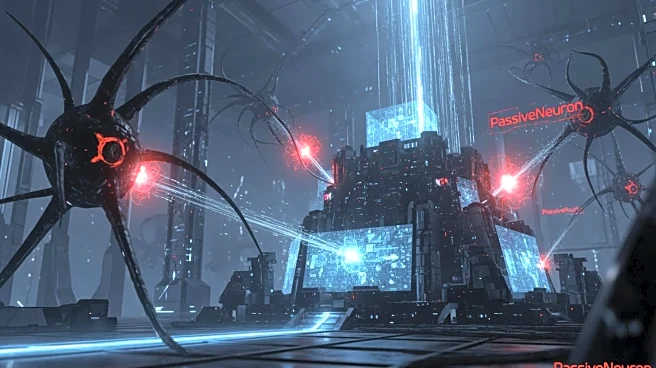What's Happening?
A cyber threat actor has been targeting government, finance, and industrial organizations across Asia, Africa, and Latin America with a campaign known as PassiveNeuron. According to Kaspersky, this campaign has been active for over two years, focusing
on machines running Windows Server to achieve remote code execution and deploy web shells and various implants. The attackers have used Microsoft SQL to execute ASPX web shells and have deployed sophisticated implants like Neursite, NeuralExecutor, and the Cobalt Strike framework. These implants are loaded through DLL loaders placed in the System32 directory, ensuring persistence and automatic execution at startup. The campaign is attributed to a Chinese-speaking APT, with techniques similar to those used by groups like APT31 and APT27.
Why It's Important?
The PassiveNeuron campaign highlights the ongoing threat posed by advanced persistent threats (APTs) to critical infrastructure and government entities. By targeting server machines, these attacks can serve as entry points into organizations, potentially compromising sensitive data and operations. The use of sophisticated implants and techniques to evade detection underscores the evolving nature of cyber threats. This campaign's attribution to a Chinese-speaking APT suggests geopolitical implications, as cyber warfare becomes a tool for state actors to exert influence and gather intelligence. Organizations must enhance their cybersecurity measures to protect against such threats, which can have significant economic and security impacts.
What's Next?
Organizations targeted by the PassiveNeuron campaign may need to reassess their cybersecurity strategies, focusing on detecting and mitigating sophisticated threats. Governments and cybersecurity agencies might increase collaboration to share threat intelligence and develop countermeasures. The campaign's attribution to a Chinese-speaking APT could lead to diplomatic discussions or actions aimed at addressing state-sponsored cyber activities. As cyber threats continue to evolve, there may be increased investment in cybersecurity technologies and training to better protect critical infrastructure.
Beyond the Headlines
The PassiveNeuron campaign raises ethical and legal questions about the use of cyber warfare by state actors. It highlights the need for international agreements and norms to govern cyber activities and prevent escalation. The campaign also underscores the importance of cybersecurity education and awareness, as human error remains a significant vulnerability. Long-term, this development could lead to shifts in how organizations approach cybersecurity, prioritizing proactive measures and collaboration over reactive responses.

















